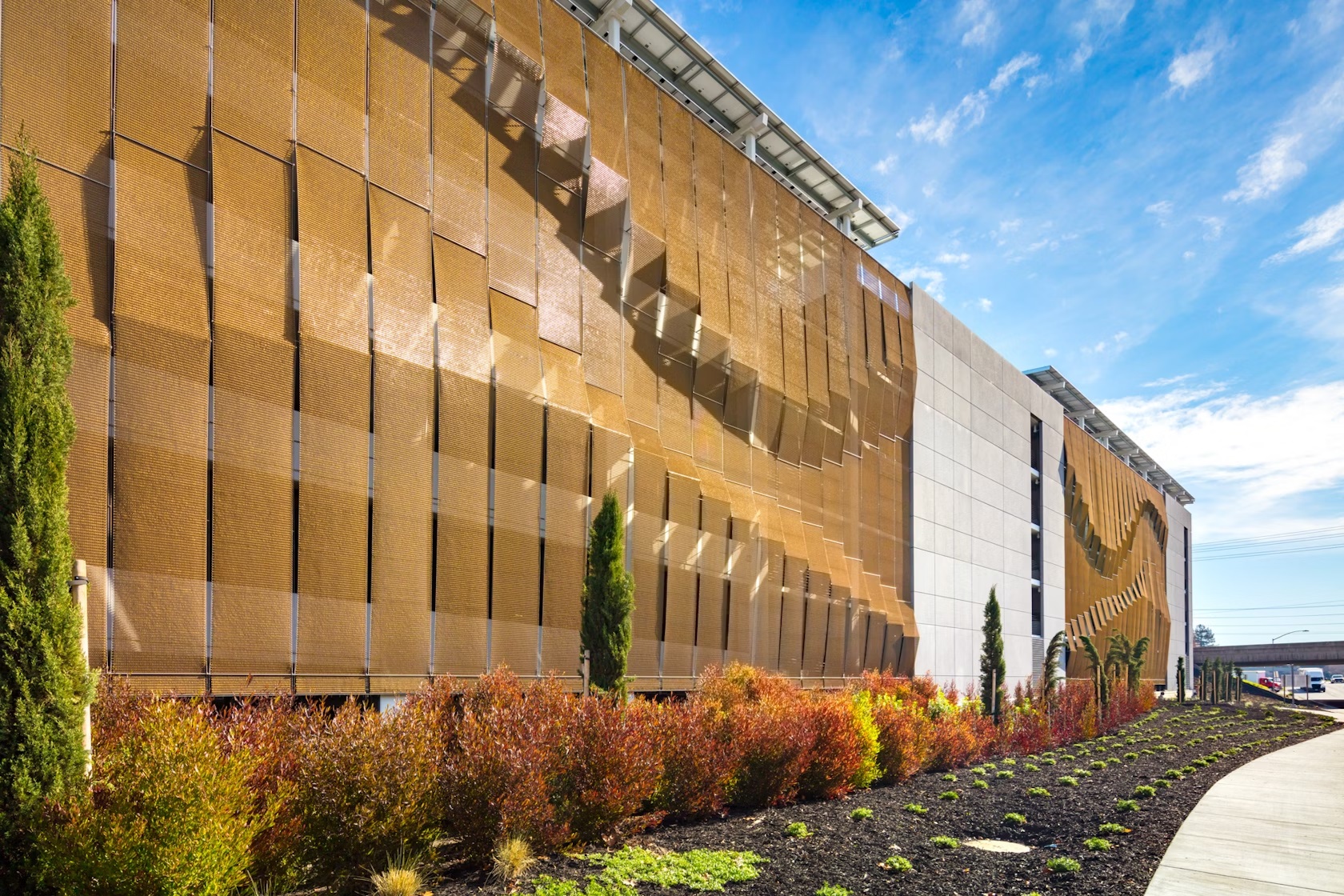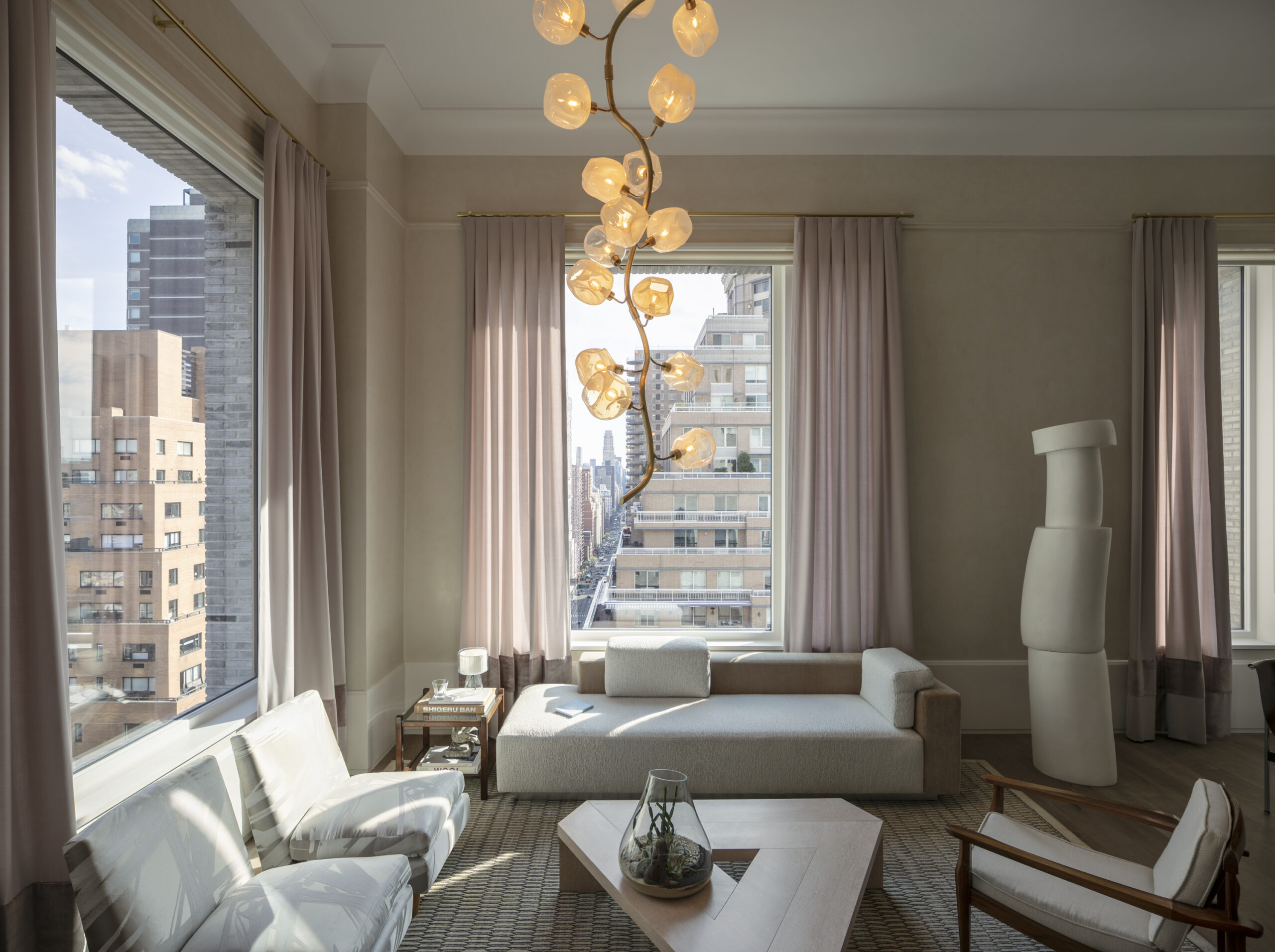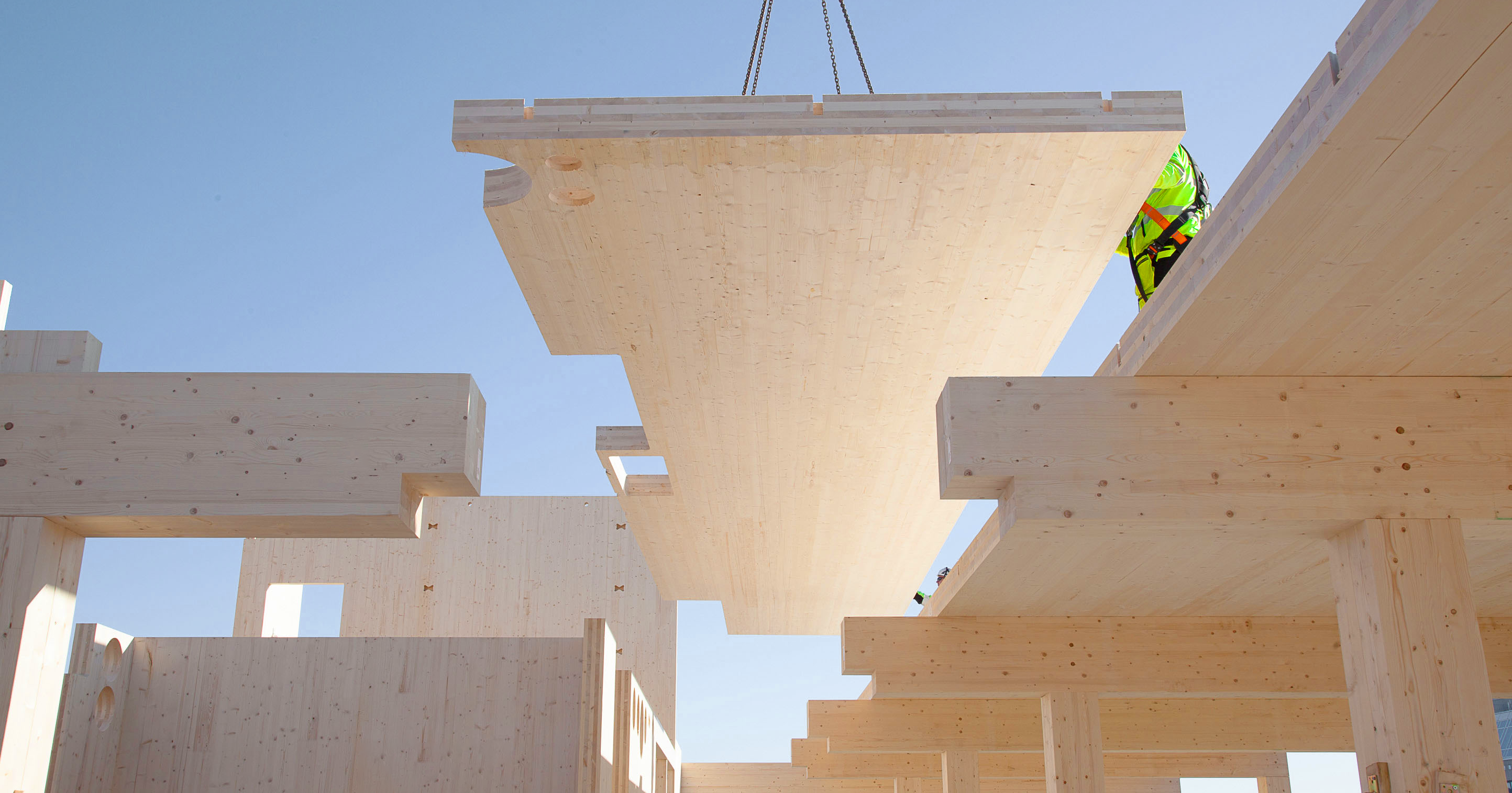The jury is deliberating... stay tuned for the winners of Architizer's A+Product Awards! Register for the A+Product Awards Newsletter to receive future program updates.
Great design reimagines what is possible. Manufacturer Kaynemaile has been recognized in this year’s A+Product Awards in the Sustainable Design category as a Popular Choice Winner for their groundbreaking product, RE/8 Bio-circular Architectural Mesh. This innovative material, which reimagines two-thousand-year-old chainmail, has garnered international acclaim for its sustainability and functionality, solidifying Kaynemaile’s position at the forefront of architectural innovation.
The RE/8 Bio-circular Architectural Mesh not only embodies cutting-edge material science but also sets a new standard for eco-friendly building solutions, demonstrating how modern technology can transform ancient concepts into highly sustainable, practical applications in today’s architectural landscape.
From Ancient Armor to Modern Architecture
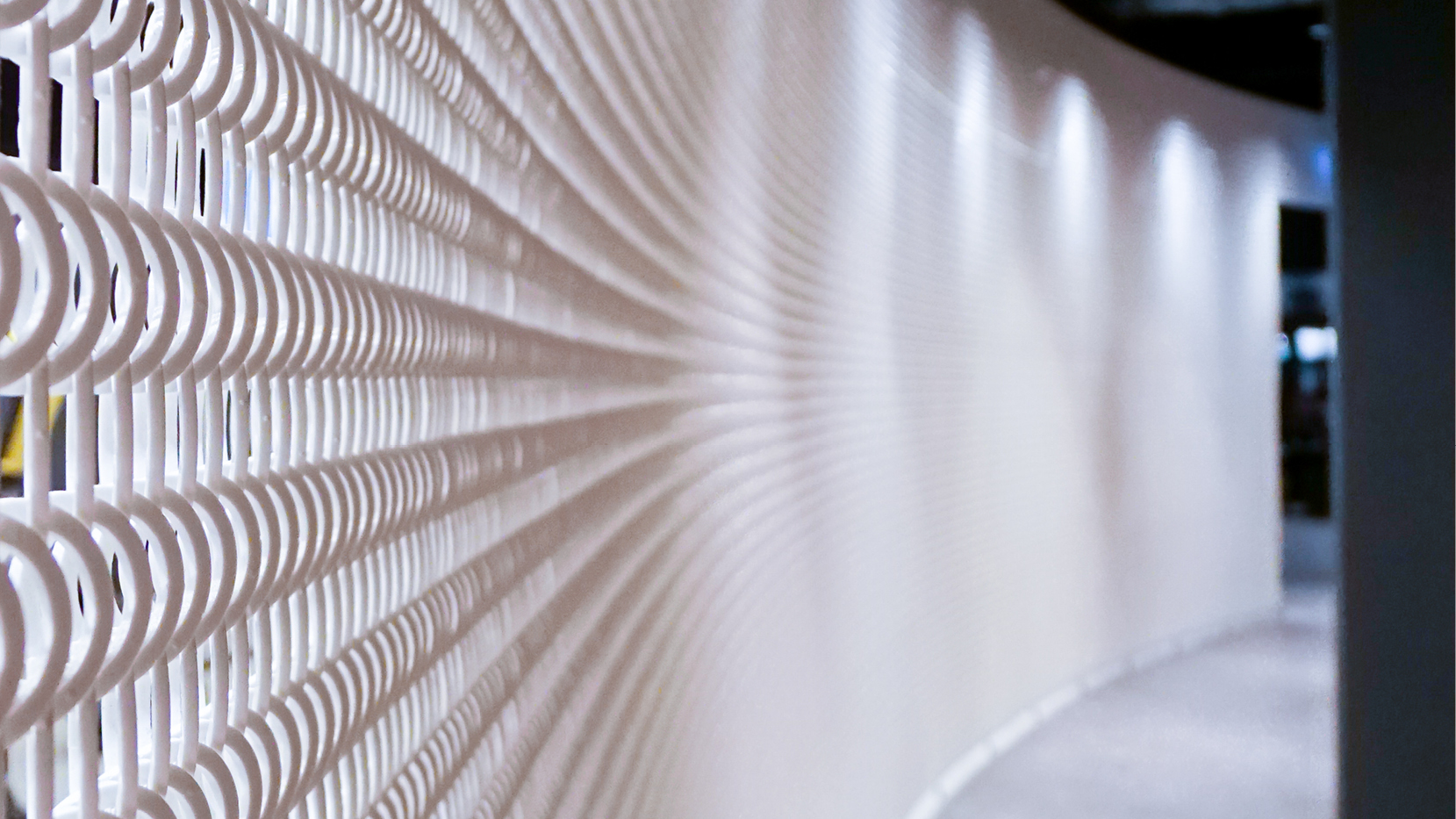 Founded in 2006 by CEO and founder Kayne Horsham, Kaynemaile has revolutionized the concept of chainmail, transforming it from ancient armor into a unique architectural mesh product. Horsham’s pioneering liquid state assembly process was a world first, producing lightweight chainmail for architecture and propelling this ancient material into the 21st century.
Founded in 2006 by CEO and founder Kayne Horsham, Kaynemaile has revolutionized the concept of chainmail, transforming it from ancient armor into a unique architectural mesh product. Horsham’s pioneering liquid state assembly process was a world first, producing lightweight chainmail for architecture and propelling this ancient material into the 21st century.
Kaynemaile Architectural Mesh is made from high-grade polycarbonate, the same robust material used in airplane windshields and astronaut helmets. Despite its strength and impact resistance, the mesh is remarkably lightweight, weighing close to half a pound per square foot. This feature reduces the static load on buildings, significantly cutting installation labor costs, a crucial advantage in today’s construction market.
Introducing the RE/8 Bio-Circular Architectural Mesh
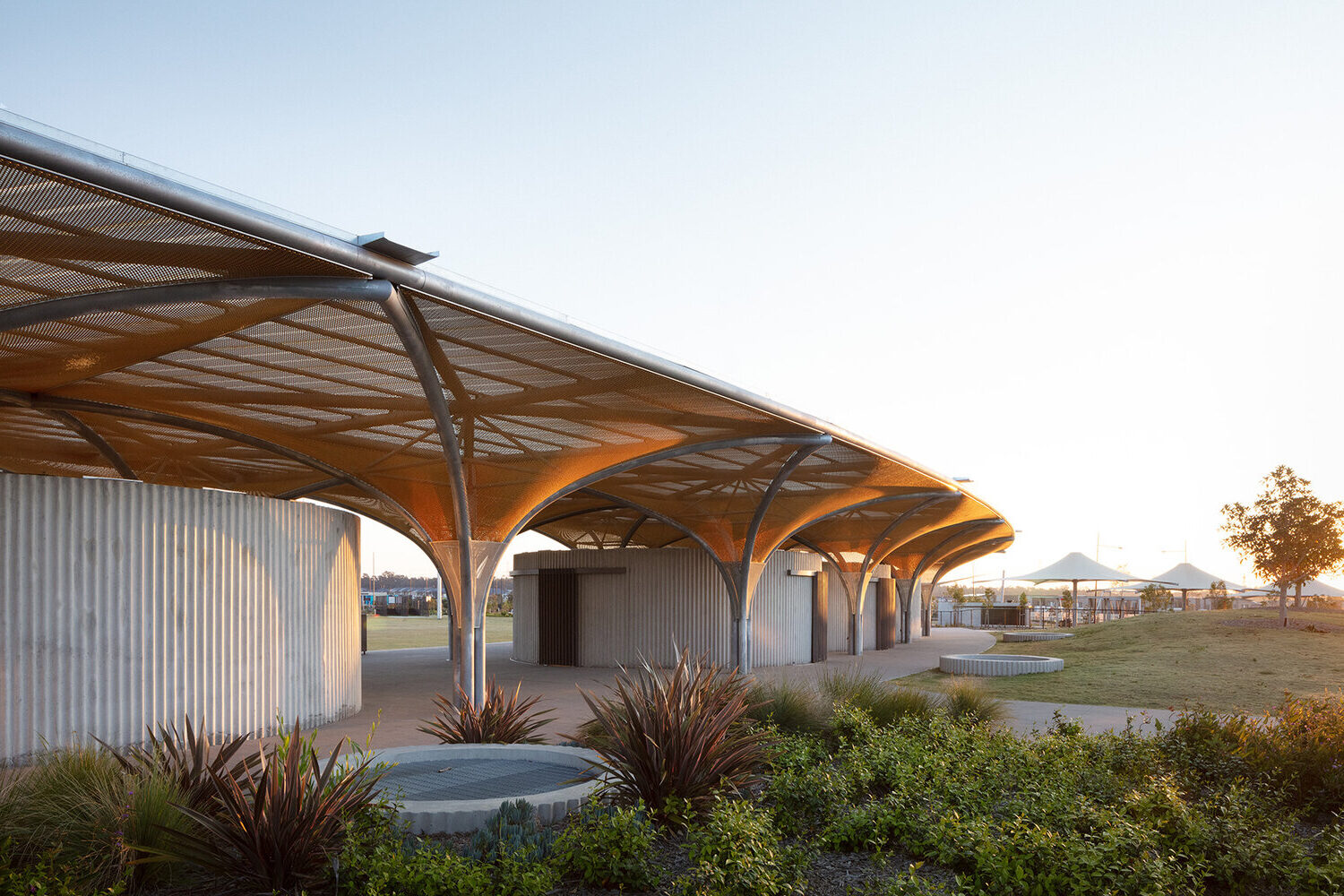 Last year, Kaynemaile announced their latest innovation, the RE/8 Bio-circular Architectural Mesh. This product marks a significant shift from fossil-fuel-based raw materials to biomass raw materials, aligning with Kaynemaile’s commitment to sustainability. The RE/8 mesh is made from an industry-first, cradle-to-gate carbon-neutral polycarbonate developed by Covestro, a leading global producer of advanced polymers.
Last year, Kaynemaile announced their latest innovation, the RE/8 Bio-circular Architectural Mesh. This product marks a significant shift from fossil-fuel-based raw materials to biomass raw materials, aligning with Kaynemaile’s commitment to sustainability. The RE/8 mesh is made from an industry-first, cradle-to-gate carbon-neutral polycarbonate developed by Covestro, a leading global producer of advanced polymers.
RE/8 Bio-circular Architectural Mesh offers a sustainable solution for architects, designers, and constructors. It is crafted from a single sustainable polymer that is not only beautiful and functional but also possesses the highest environmental credentials for polycarbonate currently available. This product reduces the carbon footprint of Kaynemaile’s previous raw material by up to 80%, enhancing their circular economy efforts while maintaining proven functionality. It is ISCC PLUS-certified, LEED-enabled, and uses a revolutionary mass-balanced polymer from Covestro.
Commitment to a Circular Economy
The development of RE/8 Bio-circular Architectural Mesh is the culmination of Kaynemaile’s 20-year dedication to circular economy practices, which began with a nil-waste process and full recyclability. “From the very start, we have sought the solution that technology is now able to deliver,” says Kayne Horsham. This product exemplifies Kaynemaile’s commitment to sustainability, offering up to 70% solar reduction for exterior applications combined with significant airflow through its unique 3-D structure.
Innovative Features of RE/8 Bio-Circular Architectural Mesh
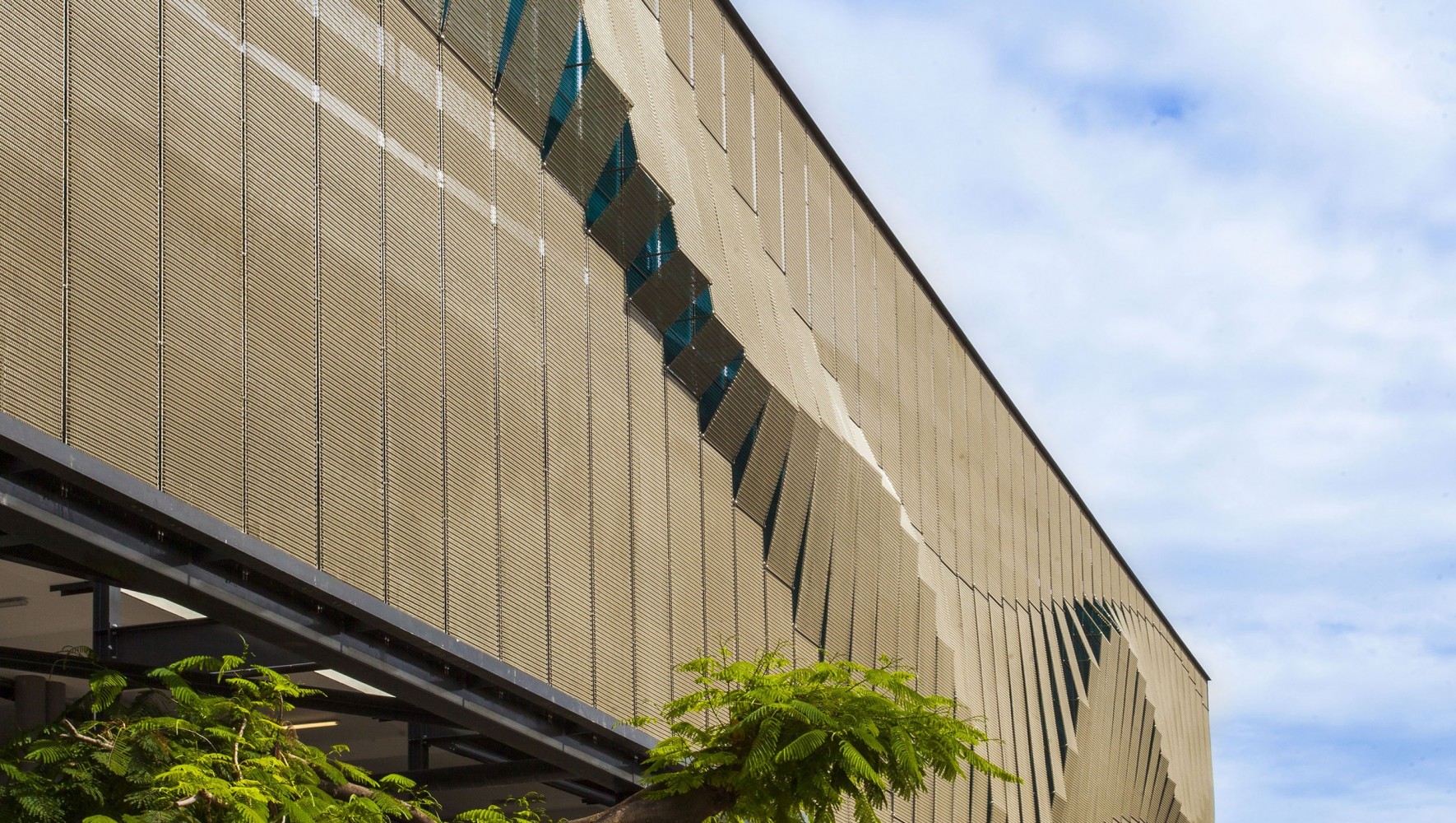
- ISCC PLUS certified: Sustainable share of up to 88% of the manufactured product.
- Carbon footprint reduction: Up to 80% reduction in the base polymer material.
- High performance: Utilizes Makrolon® RE polycarbonate from Covestro.
- Chemical consistency: 100% chemically identical to incumbent fossil equivalents.
- Ease of integration: A true drop-in solution with no process interruption.
- Sustainability: LEED-enabled, supports GHG reduction targets, and promotes circular economy.
- Manufacturing: Pioneering nil-waste liquid-state manufacturing process.
- Solar performance: 70% reduction in solar gain on exterior installations.
RE/8 Bio-circular Architectural Mesh is manufactured using Makrolon RE, a new bio-circular polycarbonate from Covestro. This material is produced using bio-based raw materials sourced from an ISCC Plus certified bio-waste supply chain, ensuring that the feedstock is derived from sustainable sources like used cooking oils and forestry waste.
Unlike traditional recycled plastics, which can introduce chemical contamination and affect product quality, the bio-circular feedstock used in RE/8 maintains the same high standards both chemically and mechanically as fossil-fuel-derived polycarbonates. The nil-waste production process, certified renewable energy use, and 100% recyclability make RE/8 a future-proof, sustainable material that sets a new standard in the industry.
Transforming the Industry

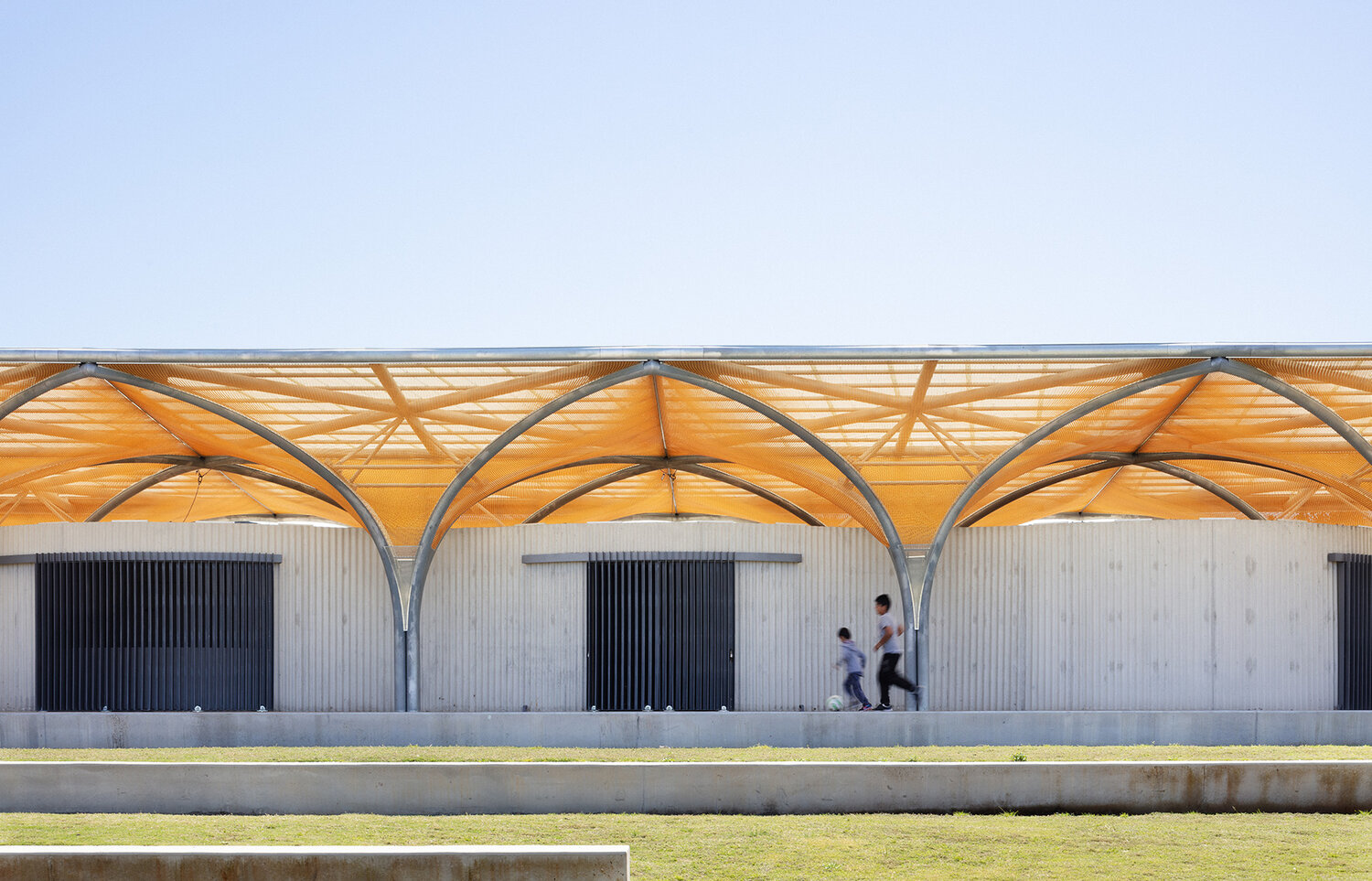 RE/8 Bio-circular Architectural Mesh is not only a standout product for both exterior and interior applications but also represents a significant leap forward in sustainable design. It is 100% chemically identical to Kaynemaile’s previous material, fully recyclable, and supports greenhouse gas reduction targets. This product is reshaping the way the industry views architectural mesh, combining aesthetic appeal with unmatched environmental credentials.
RE/8 Bio-circular Architectural Mesh is not only a standout product for both exterior and interior applications but also represents a significant leap forward in sustainable design. It is 100% chemically identical to Kaynemaile’s previous material, fully recyclable, and supports greenhouse gas reduction targets. This product is reshaping the way the industry views architectural mesh, combining aesthetic appeal with unmatched environmental credentials.
As Kaynemaile continues to push the boundaries of material science and sustainable design, their RE/8 Bio-circular Architectural Mesh stands as a testament to their innovative spirit and unwavering commitment to creating a more sustainable future for architecture.
The jury is deliberating... stay tuned for the winners of Architizer's A+Product Awards! Register for the A+Product Awards Newsletter to receive future program updates.
